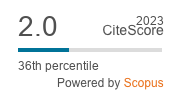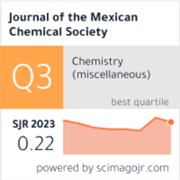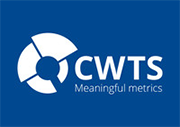
For Authors
Authors are expected to adhere to the following ethical guidelines; infractions may result in the application of sanctions by the editor(s), including but not limited to the suspension or revocation of publishing privileges.
-
Authors main obligation is to present their research in an accurate and complete manner, including all the relevant data, avoiding deception, and providing objective discussion of the significance of the research. The submitted manuscript should provide enough detail and references to assure reproducibility.
-
Authors should perform a thorough literature search to find, and then cite, original publications on closely related investigations.
-
Authors should use space wisely and economically. When requested, they should make every possible effort to provide data, methods, and samples of unusual materials (unavailable elsewhere) to other researchers. This, logically, with appropriate material transfer agreements to protect the legitimate interests of the authors.
-
Authors should clearly identify any unusual hazards related to the chemicals, equipment, or procedures used in their investigation.
-
Authors should avoid fragmentation of research reports. A scientist who has done extensive work on a system or group of related systems should organize publication so that each report gives a well-rounded account of a particular aspect of the general study.
-
Author should inform the editors of related manuscripts that they may have under editorial consideration or in press (in the J. Mex. Chem. Soc. or any other journal). They should include copies of such manuscripts during the submission process.
-
Author should not submit manuscripts describing essentially the same research to more than one journal, unless it is a resubmission of a manuscript that has been rejected or withdrawn from publication.
-
A manuscript might sometimes justify criticism of the work of other scientists. However, in no case is personal criticism considered to be appropriate.
-
No fictitious name should be listed as an author or coauthor. Co-authors of a paper should be only those who made significant scientific contributions to the work and who share responsibility and accountability for the results. Other contributions should be indicated in a footnote or an “Acknowledgments” section. Administrative relationships do not qualify a person for co-authorship. Deceased persons who meet the criterion for inclusion as co-authors should be so included, with a footnote reporting date of death.
-
The corresponding author, or the person submitting the manuscript in their behalf, accepts the responsibility of including as co-authors all persons appropriate and none inappropriate. The submitting author should have sent each living co-author a draft copy of the manuscript and have obtained the co-author’s assent to co-authorship of it.
-
The corresponding author must reveal at the time of submission either that there is no conflict of interest to declare, or should disclose potential conflicts of interest that will be acknowledged in the published article.
-
Plagiarism (understood as “the appropriation of another person’s ideas, processes, results, or words without giving appropriate credit”) is not acceptable in the J. Mex. Chem. Soc. Authors should not engage in plagiarism copying, or very close paraphrasing, texts or results from another’s work. Authors should not engage in self-plagiarism either.
-
Images should not be manipulated. When images are included in an account of research performed or in the data collection as part of the research, an accurate description of how the images were generated and produced should be provided.
For Editors
-
Editors should be impartial, judging each manuscript only on its merits regardless the nationality, race, sex, religion, seniority, or institutional affiliation of the authors. An editor may, however, take into account relationships of a manuscript immediately under consideration to others previously or concurrently offered by the same author(s).
-
Editors should assess manuscripts submitted for publication at reasonable speed, and consider possible relationships with previous publications, by the same or other authors.
-
Editors are responsible for the acceptance or rejection of each manuscript. Albeit such a responsibility typically requires to seek advice from reviewers, manuscripts may be rejected without external review if the editors consider them to be inappropriate for the journal.
-
Editors should maintain open communication with authors and should chose reviewers based on their expertise and good judgment. An editor may chose a particular reviewer despite an author has requested otherwise if the editor consider their opinion as important to fairly judge the manuscript. For example, if a manuscript seriously contradicts previous work of a potential reviewer.
-
Editors should not disclose any information about a manuscript under consideration to anyone but the reviewers whose professional advice is requested.
-
To avoid conflict of interest, editors should never handle manuscripts authored by themselves, recent graduates, collaborators or colleagues from their same institution. In addition, manuscripts very closely related to the current or past research of an editor should be handled by other editor.
-
If an editor receive compelling evidence that erroneous information has been previously published in the journal, it is their duty to facilitate publication of an appropriate report describing the error and, when possible, correcting it. Such a report may be written by the person who discovered the error or by an original author.
For Reviewers
-
A chosen reviewer who feels insufficiently qualified to judge the research reported in a manuscript should refuse to review and let the editor know as soon as possible.
-
Reviewers should disclose any potential conflict of interest. They should not evaluate a manuscript authored or co-authored by any person with whom they have a personal or professional connection. If in doubt, they should return the manuscript promptly without review, advising the editor of the conflict of interest or bias. Alternatively, reviewers may choose to sign their comments stating their interest in the work (with the understanding that it may, at the editor’s discretion, be transmitted to the authors).
-
Reviewers should respect the intellectual independence of the authors, and express their opinions in a respectful and professional way. The revision should be impartial regardless the nationality, race, sex, religion, seniority, or institutional affiliation of the authors. Reviewers should evaluate the quality of a manuscript (including and the Supporting Information, the experimental and theoretical data, the interpretations and exposition) objectively and based solely on scientific standards.
-
Reviewers should explain and support their judgments adequately so that editors and authors may understand the basis of their comments. Any statement that an observation, derivation, or argument had been previously reported should be accompanied by the pertinent citation. Unsupported assertions should be avoided.
-
Reviewer should treat both the submitted manuscript and data as received from the journal, the evaluation report and related correspondence as confidential documents. These documents should neither be disclosed to nor discussed with others except, in special cases, when shared in confidence with persons from whom specific expert advice may be sought. In such instances, the identities of those to be consulted should be disclosed to the editor in advance.
-
Reviewers may choose to disclose their identity to the manuscript authors. In such cases the editor should be consulted, and the decision would be at his/her discretion.
-
Reviewers may disclose that they have served as an invited reviewer for the JMCS. However, under no circumstances they should identify themselves as the reviewer of a specific manuscript.
-
Reviewer should alert to failure of authors to cite relevant work by other scientists. However, they should be cautious regarding citation to their own research.
-
Reviewer should notify the editors if the manuscript under consideration has any substantial similarity with other published papers or any manuscript concurrently submitted to another journal.
-
Reviewers should submit their reports in due time. If that is not possible editors should be immediately notified.
-
It is expected that the referees use their knowledge to comment manuscript leading to remove ambiguities in the scientific content and to improve the presentation (text, figures, tables, formulae) of the script. They are asked to evaluate:
(a) Originality. If the objectives and/or conclusions of the script have been previously addressed, give the information to the editor.
(b) The pertinence of the introduction and references therein. This section should describe what the author hopes to achieve and how is it related to the available knowledge. State if there is any literature that the author(s) should cite.
(c) The soundness of the discussion. This section should be clearly presented and in a logical sequence. A merely reading of the results is not acceptable; there should be an explanation, well supported by the literature.
(c) The accuracy in the description of the experimental procedures. There should be enough information to replicate the experiments. SI units are highly recommended.
(e) The evidences in support of the structures of new compounds.
(f) The significance and relevance of the conclusions; have these been published elsewhere?
(e) The consistency and relevance of the literature references.
-
When necessary, the referees may suggest the revision of the text by a native English speaker. Referees should not make personal and subjective censure in their comments.
-
It is requested to verify that the cited references are correct in their form (citation -ACS short format-) and content (matches with the content of the manuscript).








